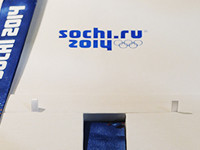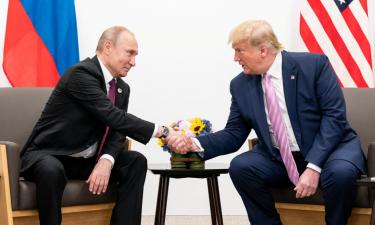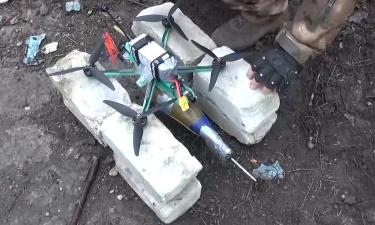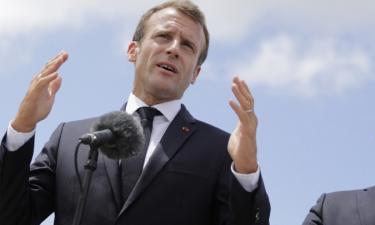What can Winter Games in Sochi do for Russia?
It has become trendy to criticize the upcoming 2014 Winter Olympics in Russia. A poor choice of location, rebuilding of Sochi, embezzlement are among the arguments cited by the Russians. The cost of preparation for the Games has suspiciously increased five-fold. Why such a sudden increase?
The initial joy of the fact that the Winter Games 2014 will be held in Russia was quickly forgotten. At first, the joy was obvious, which was reflected in social networks and forums: "Personally, I and all my surroundings were insanely happy that Sochi was chosen for the Winter Olympics in 2014 and that the Winter Games will be held in Russia for the first time," user wasin commented. "I was in Sochi in 2007, when the IOC made the decision about the 2014 Olympics, saw overwhelming joy of the locals and could not understand why these fools were rejoicing!" Rasskazyvaetkrotoffa wrote.

Suppose, some time has passed, construction was commenced in Sochi, the locals have realized that the future event will affect their usual life and began feeling uncomfortable, were horrified by the appearance of the city that has turned into one big construction site , and have rebelled, saying that they did not want to live like this. What they did want is a big question. Perhaps it would be ideal for local residents if by some miracle the construction was conducted outside of the city, roads and infrastructure would magically appear overnight, without digging the ground, without the influx of migrant workers and without noise.
For all Russian citizens outraged by the cost of the Olympics it would be ideal if the Sochi Olympic Committee repeated the experience of their colleagues who organized the Olympics in Vancouver with a minimum cost, minimum facilities, with athletes eating junk food and living in Chinatowns at the cost of only $9 billion. Compared with the expenditure for the Sochi Games, which today is in the order of 1.5 trillion rubles it is mere pennies.
There is no need to compare the iinfrastructure of Vancouver and Sochi. We should be reminded that out of the said sum of 1.5 trillion only 214 billion was spent on the construction of sports facilities and the creation of facilities for their operation, and the remaining funds were spent on the reconstruction of the southern city. It is important to mention that the cost of the Olympics in Canada increased 12 times during the construction. The same situation was at the last Summer Games in London, where the initial estimate was 3.93 billion and 15.39 billion was spent. That is, the increasing cost of the construction of large infrastructure projects is a normal international practice.
The statement that the cost of the Olympic Games in Sochi was record in the history of the Olympic Games was also refuted. The president of the International Olympic Committee (IOC) Thomas Bach said that the budget for the organization of the Olympic Games in Sochi was far from being excessive, and was within the budget for the organization of other Olympics. The head of the IOC called to separate spending on sports facilities and spending on the reconstruction of Sochi. Earlier, Russian Prime Minister Dmitry Medvedev said that he considered the investment in the infrastructure of Sochi (roads, energy, hotels and so on) to be justified. Meanwhile, there is no need to refer to the international experience when discussing the issue of feasibility as it is sufficient to look at the history of the Moscow Games in 1980. Alexander Dityatin, a 1980 Olympic champion in gymnastics shared his thoughts with Pravda.Ru:
"Judging by the Moscow Olympics, many objects have been opened. The facilities built in Moscow specifically for the Olympic Village included houses that people were given for free from the state, some Olympic champions were given apartments there, the stadium was updated and modernized. On this part I can say that this was a huge plus," said the athlete, stressing that the infrastructure after the Sochi Olympics would no longer be free, and its further application would depend on its affordability.
Dmitry Svishchev, first deputy chairman of the Duma Committee on Physical Culture, Sport and Youth Affairs directly involved in the preparations for the Winter Games agreed with Alexander Dityatin in terms of heritage, or properly speaking, feasibility of the Olympics:
"For any country, the Olympic Games is, in principle, a leap ahead by 20 years. If you look at what Moscow has gained from the Olympics in 1980, it is the Olympic Village where people live today, the Olympic Stadium is still working (without reconstruction since 1980), Sheremetyevo airport, all roads, all this was only due to the Olympic Games. If it was not for them, we'd still be flying from Bykovo airport," said the MP. "What does the Olympic construction mean for the Sochi region? We know that thanks to the "successful" collapse of the USSR we have lost nearly all Black Sea resorts. We have no resort left where one can go for a quality vacation. Sochi used to be one of the elite resorts, but it is outdated, it was built in early 20th century, and everything fell apart. All these commercial stalls, an old airport, one road - it all turned into dust. Thanks to the Olympics, Sochi will be cooler than Moscow. "
Dmitry Svishchev returned from Sochi three days ago and had a chance to assess the new airport, stadiums built to the highest international standards, and so on. "Of course, it's not cheap, definitely," added the deputy. "But it's a leap forward. I think that this is a tremendous victory for Russia that it was able to build it during the crisis, has survived and built everything."
If we put emotions and criticism of the government aside, the only objective and logical question is how the built facilities will be used after the closing of the Games, and whether such significant spending will turn into attempts of rapid return on investment at the expense of the people.
"The President has called more than one meeting where he said: guys, post-Olympic use of the Olympic facilities is very important. Now the decisions on the post-Olympic use of sports facilities, infrastructure, property and so on are being finalized. I can tell you that the investors who built all these objects will definitely get state support. The question is, what kind of support? The state cannot fully satisfy the investors. But I do know that the support will be there," concluded Dmitry Svishchev. He reminded that VEB that provided loans to the investors for the Olympic construction were already promised government support for additional financing of the loans.
Maria Snytkova
Pravda.Ru
Subscribe to Pravda.Ru Telegram channel, Facebook, RSS!




